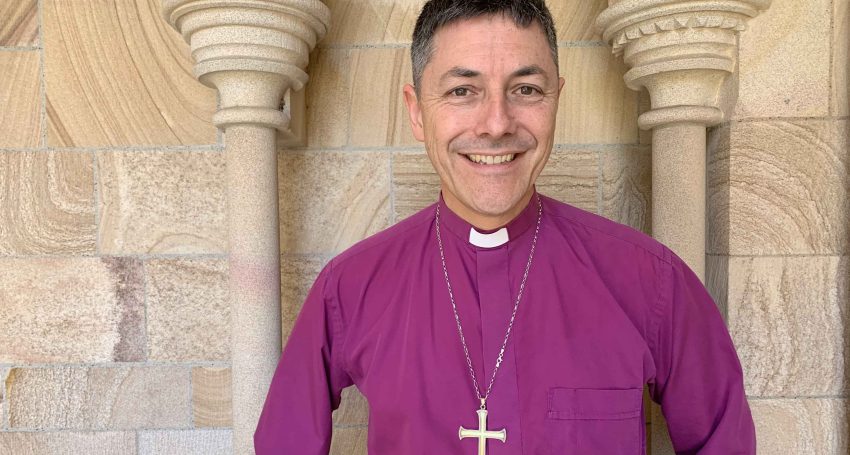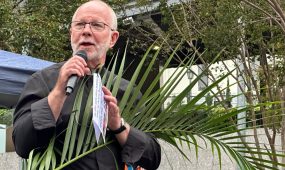Being the Church in this next season of our life together
Reflections
“While we shouldn’t hang onto things just for their own sake, there are things that anchor us to the past in important ways — there are things that hold stories connecting us deeply to our roots. My study is littered with such things — the chess set that belonged to my great-great-great-grandfather, the christening mug given to my father by his godfather, an ashtray from the pub where I worked in London as a 19-year-old,” says Archbishop Jeremy

CW Ottaway & Co jewellers closed in 2016, exactly 93 years to the day it was registered in 1923. It was a small shop in a quiet lane in the Adelaide CBD, crammed with the antique silverware that the last owner, Mr Strout, collected during the 43 years he ran the shop.
My granny knew Ottaways well, and although she was far too proper to use his first name in conversation, she knew Ian Strout well also. I remember, as a small boy, going with Granny to see Mr Strout when she needed a necklace repaired or some advice on a well-worn silver hallmark. They would talk about the cricket and family and he would admire whatever it was that Granny had brought in.
Advertisement
I remember going with Mum, after Granny died, to see Mr Strout seeking advice about some of the silverware from Granny’s glass-fronted cabinet that took pride of place in her sitting room for as long as I could remember.
I remember saving for months as a theological student, working nights in a bar, before visiting Mr Strout to ask if he would make an engagement ring, which I then kept hidden for months before asking Josie if she might marry me.
On a visit to Adelaide in 2015 I went with Mum to Ottaways just before it closed its doors for the last time. We talked with Mr Strout about Granny, and the cricket, and his retirement plans. And then he looked around the shop wistfully, sharing about how sad he was to be finishing, but mostly his sadness about what might happen to all of the antique silver he’d collected over the years: “No one wants this sort of thing any more. Most likely it will go to auction and be melted down.”
Advertisement
While we shouldn’t hang onto things just for their own sake, there are things that anchor us to the past in important ways — there are things that hold stories connecting us deeply to our roots. My study is littered with such things — the chess set that belonged to my great-great-great-grandfather, the christening mug given to my father by his godfather, an ashtray from the pub where I worked in London as a 19-year-old. And even though I don’t play chess, use the mug to hold pens and don’t smoke, each item tells a story connecting me to a bigger, deeper story. I hope that one day these heirlooms will do the same for my kids, their kids, and so on.
So, too, the liturgies, prayers and stories of the faith we’ve inherited connect us to a bigger, deeper story. All of these tell us something of where we’ve come from — of the faith and lives of those who’ve come before us, pioneering ways of worship and prayer and being the Church. Some of these things remain little more than curios, reminders of a past that is long gone. Some of them still hold power and meaning that deepen with continued use.
As we imagine who and what we might be as the Church in this next season of our life together, we might ask, which of these things have served their purpose and can be left behind, which of these things need to be imbued with new meaning if they are to hold any power for us, and which of these hold their meaning and their power and can be passed unchanged to those who will follow us?






